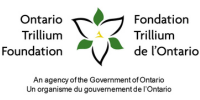Key Activities
Skill Building Workshops
Participants engage in virtual and in-person skill-building workshops and mentored activities (including the LEAF Tree Tenders Tree Training Program - 15 hours of arboriculture training led by industry professionals.
Topics include:
- Tree biology, identification, planting and care
- Urban forest stresses and management
- Tree equity and increasing urban forest resilience
- Indigenous land practices and perspectives
- Career pathways and professional development in the environmental sector
Workshops and activities occur weekly on Tuesday evenings from May through August. Some evening and weekend activities will also be scheduled.
Community-Centred Urban Forestry Activities
Participants have hands-on opportunities to improve the resilience of communities with low tree canopy cover, guided by LEAF staff and community partners. Activities may include:
- Planning and leading tree tours
- Participating in planting and stewardship events
- Engaging residents through in-person and online outreach
- Collecting and contributing to citizen science data
Career Mentorship & Networking Opportunities
Participants receive guidance and support as they build professional skills and connections through:
- Peer feedback and career planning sessions
- Networking with industry professionals
- Teamwork and leadership skill development
Benefits to Participants
- Access all program training and activities at no cost
- Build practical skills in tree identification, planting and urban forest stewardship
- Nurture a deeper relationship with the land
- Explore both Indigenous and Western perspectives on land stewardship
- Develop leadership, communication and teamwork skills
- Connect with industry professionals and explore environmental career paths
- Receive a certificate of completion
- Contribute to increased appreciation of the urban forest
- Grow meaningful connections with other passionate young people
Applicant Criteria
Applicants Must:
- Be between the ages of 18 and 29
- Be a resident of the City of Toronto
- Be able to commit up to 5 hours per week. Meetings occur weekly on Tuesday evenings from May through August. Some evening and weekend activities will also be scheduled.
- Be available to attend LEAF’s Tree Tenders Training (15 hours of arboriculture training led by local professionals). The course will take place in May over four weekday evenings and two weekends - each of the six classes is mandatory
- Have an interest in arboriculture, urban forestry and/or environmental community engagement
This program is open to all Toronto youth, at no cost to participants, with priority given to applicants from equity-deserving groups, including (but not limited to) newcomers, gender-marginalized, racialized, and 2SLGBTQ+ individuals.
Stories from YUFL Graduates
Hear from YUFL Alumni about the benefits of the program and what they’ve been up to since participating!
Supporting Partners









